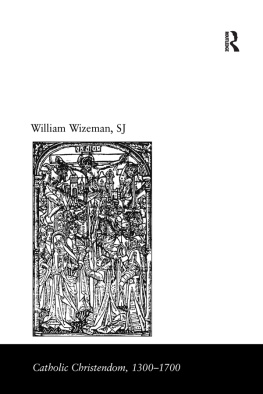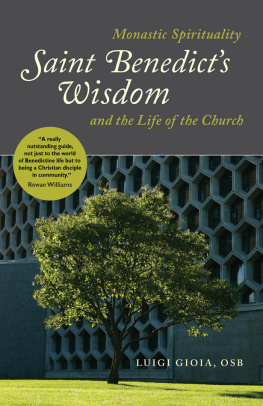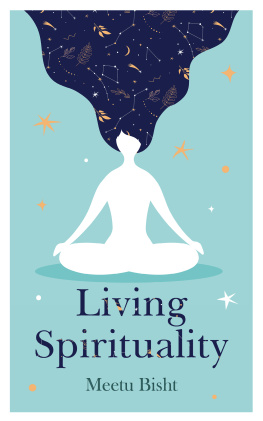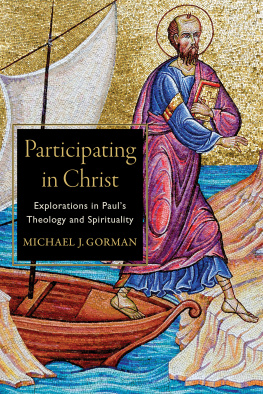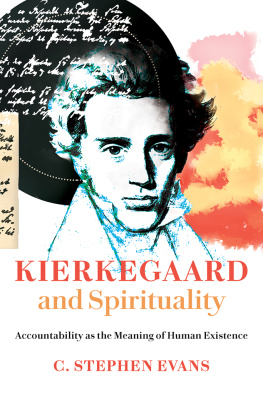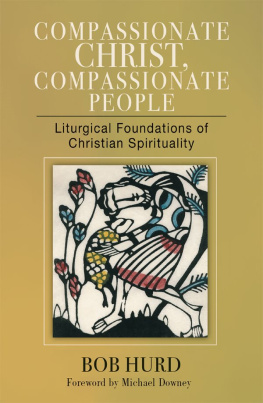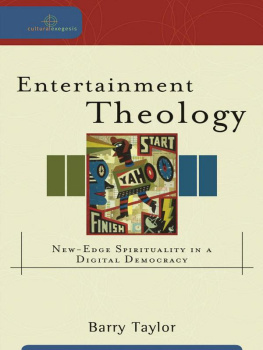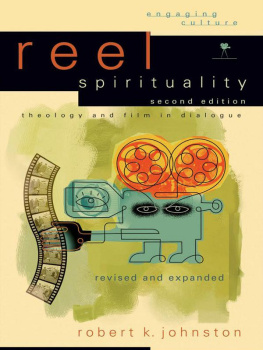Catholic Spirituality, Its History and Challenge
James J. Bacik

Paulist Press
New York/Mahwah, N.J.
Cover design by Cheryl Finbow
Book design by Joseph E. Petta
Copyright 2002 by James J. Bacik
All rights reserved. No part of this book may be reproduced or transmitted in any form or by any means, electronic or mechanical, including photocopying, recording or by any information storage and retrieval system without permission in writing from the Publisher.
Library of Congress Cataloging-in-Publication Data
Bacik, James J., 1936
Catholic spirituality, its history and challenge / James J. Bacik.
p. cm.
ISBN 978-1-61643-218-8
1. SpiritualityCatholic Church. I. Title.
BX2350.65 .B325 2002
248.482dc21
2001058767
Published by Paulist Press
997 Macarthur Boulevard
Mahwah, New Jersey 07430
www.paulistpress.com
Contents
Dedication
For my brother priests of the Diocese of Toledo, Ohio
friends who encourage and humble
dedicated servant leaders who form communities of faith
proclaimers of the Word who reverence the gracious Mystery.
This book is about the exciting spiritual quest that is engaging the hearts of a growing number of believers in our fast-paced, success-oriented culture. It explores the role of theology in channeling the energy of this spiritual revival in constructive directions.
This topic is important not just to theologians, but to everyone serious about the spiritual quest. We all need guidance for the journey of life, and most of us step back at times to ponder its meaning and purpose. When theology is out of touch with spiritual interests, it tends to become overly abstract and speculative, unable to provide guidance for the journey and for reflection upon it. And when persons on a spiritual search are not directed by solid theology, they can easily flounder and wander from the pathway leading to healthy growth.
As we explore the relationship between spirituality and theology, we need to clarify the meaning of the terms. The word spirituality is especially elusive. It refers both to lived experience and a distinct academic discipline that reflects on particular types and aspects of human experience. As lived experience, spirituality can be described in terms of our relationship to the triune God. It has to do with worshiping God the Father, putting on the mind of Christ and listening to the Holy Spirit. It has a communal dimension, suggesting coresponsibility for the church, active participation in the liturgy and collaboration in the work of justice and peace. In more secular terms, it is concerned with the search for meaning in the midst of absurdity, purpose in an aimless society, commitment in a world of open options, depth in a superficial culture and integration in a fragmented life. Spirituality has a relational character. It seeks the healing of estrangement from God, from other human beings, from nature and from our own selves. Talk of spirituality directs our attention to the depth dimension of the full range of human experience and to the Mystery that sustains our existence and encompasses all of our activities.
As an academic discipline, spirituality initiates a systematic, critical study of all these lived experiences. It draws on the work of theologians and scripture scholars and incorporates insights from other disciplines, such as anthropology, sociology and psychology. It takes seriously the experience of ordinary Christians and tries to describe it fully and accurately. It compares this portrayal with the spirituality found in other religious traditions, developing in the process a broader and deeper understanding of the distinctive Christian experience. The study of spirituality is done within the circle of faith and is directed toward personal conversion and transformation of the world.
The discipline of spirituality is still developing. It must work out a proper relationship with theology and deal with the pluralism evident in the actual experience of Catholics today. This raises the question of how historical, societal and cultural factors influence the experience of believers and their interpretation of their faith.
By way of contrast, the field of theology is more firmly established. Etymologically, theology is the study of God. According to Anselms classic definition, it is faith seeking understanding. For Aquinas, it is sacra doctrina, sacred teaching rooted in Gods revelation to us through Christ. In a modern context, theology is seen as critical reflection on experience in the light of the Christian tradition. It attempts to correlate the meanings and values of Christian faith with the meanings and values of specific cultures, always maintaining the faith as the normative partner in the dialogue. Today we are more aware of the pluralism in theology than in past ages. In Catholic circles we have three especially vigorous options available today: the transcendental Thomism of Karl Rahner and Bernard Lonergan; the vast writings of Hans Urs von Balthasar, reinterpreting the Christian tradition from the perspective of beauty; and the liberationist movement, which refocuses the tradition from the viewpoint of oppressed groups, minorities and women. The pluralism in contemporary theology, which is actually more diverse than this simple division suggests, enriches the dialogue with spirituality but also makes it more complicated.
In this book, the term spirituality generally refers to the full range of lived experience, which always includes a mystery dimension. The descriptive material is drawn from the experience of Catholics in the United States both before and after the Second Vatican Council. The theological framework comes from my mentor, Karl Rahner, one of the most influential theologians in the history of Christianity. Other theologians, including Hans Urs von Balthasar, Bernard Lonergan, Teilhard de Chardin, Gustavo Gutirrez and Rosemary Ruether, have supplied insights for our analysis of the spiritual journey of contemporary Catholics.
Part 1 explores the relationship between spirituality and theology. The spiritual search, still gathering momentum at the beginning of the new century, is threatened by distortions and imbalances. History suggests that these threats are intensified when spirituality is divorced from theology. During the first millennium of the Christian era, theology and spirituality were joined in a unified approach to the Christian life. During the second millennium, this synthesis broke down, eventually leaving spirituality adrift and academic theology out of touch with the real concerns of ordinary people. Reflecting their European experience, the Catholic immigrants to the United States in the nineteenth century developed their own devotional spirituality, which was not solidly grounded on Scripture and liturgy. Since the Second Vatican Council, contemporary theology has helped Catholic spirituality adopt a more Christocentric focus, rooted in the Bible and the liturgy.
We still have the challenge of developing a theologically sound spirituality that will protect against the superficial approaches fostered by our culture. Karl Rahner insisted that this is best accomplished by a vigorous systematic theology that knows the tradition and is in touch with contemporary concerns. Others advocate developing spirituality as a distinct discipline in dialogue with biblical studies, world religions, the sciences such as psychology and sociology, and especially dogmatic theology, which provides an encompassing perspective. Whatever the outcome of this debate among scholars, all Christians can participate in the quest for a solid integrated spirituality by engaging in theological reflection, either formally or informally. Part 1 ends with suggestions for doing such reflection more effectively, based on fundamental principles enunciated by the influential Catholic thinker Bernard Lonergan.
Next page

